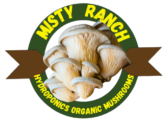
India is the largest producer of mushrooms in the world and oyster mushrooms being one of the exotic types of mushrooms, it will really be helpful to make Indian farmers aware of this high market producing plant that has lots of health benefits as well. Oyster mushrooms can not only give farmers more money than other mushrooms but also help them get rid of all their debts and lead a better life just by growing oyster mushrooms at home or on small farms with minimum investment and labor. No wonder why India needs more oyster mushroom farmers!
1.Oyster mushrooms are easy to grow

There are several varieties of oyster mushrooms that grow on a wide range of substrates, including other mushroom strains and sawdust. They can also be grown in a climate-controlled indoor environment. Growing conditions are easy to control and there’s no need for outside equipment or pesticides, meaning farmers don’t have to worry about introducing toxins into their farms or harming plants.
2.Oyster mushrooms are inexpensive

Oyster mushrooms are rich in protein, calcium, potassium, and vitamin D. They contain almost no calories and are high in fiber. Oyster mushrooms do not require a lot of maintenance to grow, as they do not need to be kept warm like other kinds of mushrooms. The initial set-up is inexpensive. Though they can fetch up to Rs 600 per kg at retail markets, even people with smaller plots can grow their supply at home for less than Rs 20 per kg. Best of all, they require no pesticides!
3.Oyster mushrooms can be produced in unused space

The first step in growing mushrooms is finding a location that has enough space to devote to a mushroom-growing operation. These areas can be almost anywhere, including unused parts of fields or gardens, areas of forests that are set aside for plant growth, indoor spaces or even rooftop areas. Oyster mushrooms especially do well in these settings since they are grown on logs and sawdust and can easily be reused as new ones grow back over time.
4.Oyster mushrooms provide nutrients to the soil and other plants

Oyster mushrooms are mycorrhizal. That means they have a symbiotic relationship with plants—the fungi provide nutrients to the soil and other plants while getting water and minerals from them in return. This improves soil fertility, thus increasing crop yield.
5.Oyster mushrooms create an environment for other fungi

Oyster mushrooms are only one of a handful of fungi that create an environment for other organisms to grow. Oyster mushrooms release enzymes that decompose organic matter into a simple form, thus creating soil for other fungi, bacteria and plants to flourish. Along with growing crops on their own, many farmers plant oyster mushrooms along with other plants because it speeds up growth by providing nutrients faster.
6.Society should appreciate the diversity of species on the planet

Society as a whole should appreciate, and nurture, biodiversity. Species extinction is natural, but humans have driven extinctions at alarming rates in recent years. Oyster mushrooms can be cultivated in ways that benefit local people—who need new economic opportunities—and also preserve habitats for other species. In some cases, cultivating more diverse types of plants and animals means more effective use of agricultural land, while also increasing total crop yields.
7. How did I become interested in growing oysters mushrooms?

Growing oysters mushrooms has been a hobby of mine since around 2004. It’s not a hard thing to do and only takes a little bit of time each day (and I mean really, really little—the mushrooms are pretty much grown on their own). I made very good money growing them for several years and at one point had over 100 different strains growing in my house! Let me tell you more about how it got started.

